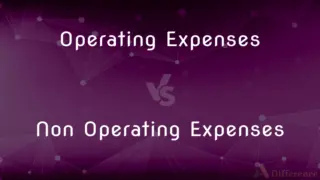Insurrection vs. Insubordination — What's the Difference?
By Tayyaba Rehman — Published on October 5, 2023
"Insurrection" refers to a violent uprising against an authority or government, whereas "Insubordination" means refusal to obey orders from a person in authority.

Difference Between Insurrection and Insubordination
Table of Contents
ADVERTISEMENT
Key Differences
Insurrection" and "Insubordination" both relate to defiance against authority but differ in scope and intensity. "Insurrection" is a broad, collective revolt, usually against a government or established authority, often involving violence or an uprising. It is a mass act of rebellion that seeks to overthrow or disrupt established order. In contrast, "Insubordination" is a narrower, individual act of defiance, usually within structured environments like workplaces or military settings, where a subordinate refuses to obey lawful orders or directives of a superior.
While "Insurrection" refers to mass rebellion aiming for systemic change or overthrow, "Insubordination" typically represents an individual’s refusal to follow orders or commands within an established hierarchy. "Insurrection" implies a level of collective unrest and defiance aimed at a broader authority or system, usually with significant consequences, and is more likely to be encountered in political contexts. In contrast, "Insubordination" occurs within predefined structures and usually pertains to direct relationships between individuals of different rank or status.
The occurrence of "Insurrection" often points to larger, systemic issues within a society or organization, reflecting widespread discontent and the desire for change or revolution. It is a term steeped in political and societal implications, referring to significant, impactful events that can alter the course of history. "Insubordination," however, is a more localized, individual act of defiance, usually not aiming to incite systemic change but rather representing a breakdown in the established order of authority between individuals.
"Insurrection" carries a sense of gravity and seriousness due to its implications of revolt and rebellion against established authority or government. It is a powerful term reflecting upheaval and a challenge to established order. In contrast, "Insubordination," while serious within its context, is limited to the realms of individual relationships within structured environments and does not bear the same weight of societal or political rebellion.
"Insubordination" and "Insurrection," despite their shared root of defiance against authority, are distinctly different in their reach, implications, and consequences. One represents collective rebellion on a grand scale, while the other depicts individual defiance within smaller, structured settings.
ADVERTISEMENT
Comparison Chart
Scope
Wide, often national or societal
Narrow, typically within organizations
Participants
Usually a collective or group
Usually an individual
Objective
To overthrow or disrupt established authority or order
To defy orders or authority within a structure
Consequence
Can alter the course of history or government structures
Impacts individual relationships and roles within a structure
Context
Political, societal
Organizational, hierarchical
Compare with Definitions
Insurrection
A violent uprising against an authority or government.
The insurrection caused the downfall of the government.
Insubordination
The act of refusing to comply with orders from a person in authority.
The worker was reprimanded for his insubordination.
Insurrection
A widespread uprising against government or authority.
The government deployed the military to suppress the insurrection.
Insubordination
An act of defiance or disobedience towards a superior.
Insubordination in the military is dealt with strictly.
Insurrection
A rebellion or revolt against established authority.
The insurrection was quelled by the military swiftly.
Insubordination
The refusal to obey orders from someone in authority.
The employee was fired for insubordination.
Insurrection
An act of revolt against established order or authority.
The insurrection sought to address inequalities in society.
Insubordination
A deliberate disregard for authority or commands within an organizational structure.
Acts of insubordination can disrupt the workplace environment.
Insurrection
A collective act of defiance aiming for systemic change.
The country's history was marked by frequent insurrections.
Insubordination
Refusal to submit to authority or to comply with orders within a hierarchy.
The sergeant dealt with the insubordination promptly.
Insurrection
The act or an instance of open revolt against civil authority or a constituted government.
Insubordination
Insubordination is the act of willfully disobeying a lawful order of one's superior. It is generally a punishable offense in hierarchical organizations such as the armed forces, which depend on people lower in the chain of command obeying orders.
Insurrection
(uncountable) The action of part or all of a national population violently rising up against the government or other authority; (countable) an instance of this; a revolt, an uprising; specifically, one that is at an initial stage or limited in nature.
Insubordination
Not submissive to authority
Has a history of insubordinate behavior.
Insurrection
A rising against civil or political authority, or the established government; open and active opposition to the execution of law in a city or state.
It is found that this city of old time hath made insurrection against kings, and that rebellion and sedition have been made therein.
Insubordination
The quality or state of being insubordinate; disobedience to lawful authority; specifically, an employee's failure or refusal to comply with a request or an assignment given by his/her supervisor.
Insurrection
A rising in mass to oppose an enemy.
I say again,In soothing them, we nourish 'gainst our senateThe cockle of rebellion, insolence, sedition.
Insurrections of base people are commonly more furious in their beginnings.
He was greatly strengthened, and the enemy as much enfeebled, by daily revolts.
Though of their names in heavenly records nowBe no memorial, blotted out and razedBy their rebellion from the books of life.
Insubordination
The quality of being insubordinate; disobedience to lawful authority.
Insurrection
Organized opposition to authority; a conflict in which one faction tries to wrest control from another
Insubordination
Defiance of authority
Insubordination
An insubordinate act
Common Curiosities
Is "Insubordination" a refusal to obey orders?
Yes, "Insubordination" specifically refers to the refusal to obey orders from someone in authority.
Can "Insurrection" lead to change in government?
Yes, "Insurrection" can lead to significant political change, including the overthrow of governments.
Is "Insubordination" a serious offense in the military?
Yes, "Insubordination" is considered a severe offense in military settings.
Is "Insurrection" legally punishable?
Yes, participating in an "Insurrection" is usually considered a serious criminal offense.
Can "Insubordination" occur in the workplace?
Yes, "Insubordination" commonly occurs in workplaces where an employee disobeys a superior.
Does "Insurrection" aim for systemic change?
Typically, yes. "Insurrection" usually aims to disrupt or overthrow established authority or order.
Is "Insurrection" typically violent?
"Insurrection" often involves violence, but it can also refer to any widespread uprising against authority or government.
Does "Insurrection" always involve a large group of people?
"Insurrection" typically involves a collective or group but can vary in scale.
Does "Insubordination" always result in punitive action?
Not always, but "Insubordination" often results in disciplinary action, depending on organizational rules.
Share Your Discovery

Previous Comparison
Break Even Point vs. Margin Of Safety
Next Comparison
Operating Expenses vs. Non Operating ExpensesAuthor Spotlight
Written by
Tayyaba RehmanTayyaba Rehman is a distinguished writer, currently serving as a primary contributor to askdifference.com. As a researcher in semantics and etymology, Tayyaba's passion for the complexity of languages and their distinctions has found a perfect home on the platform. Tayyaba delves into the intricacies of language, distinguishing between commonly confused words and phrases, thereby providing clarity for readers worldwide.
















































